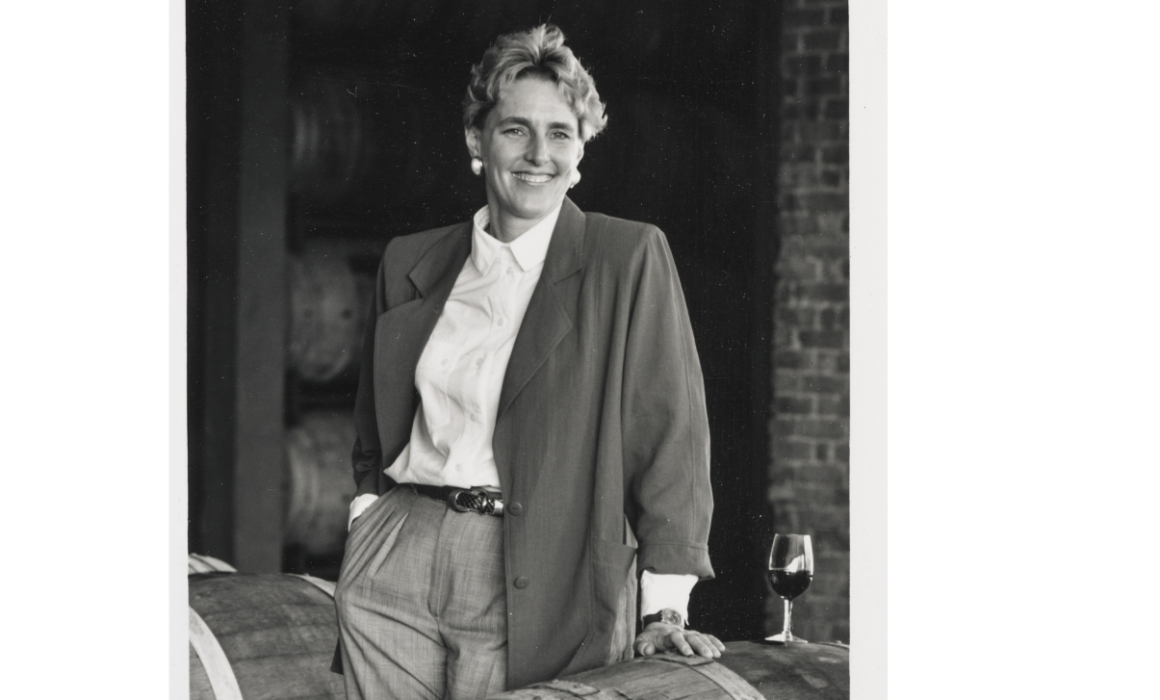Zelma Long’s Life in Wine in Sonoma County and Beyond
By Virginie Boone
Sonoma County-based winemaking and viticultural legend Zelma Long will be honored this Friday with a Lifetime Achievement Award, a well-earned accolade for her tremendous contributions to the winemaking world. She will be given the award during this Friday’s Sonoma County Barrel Auction.
Born in 1943 along Oregon’s Columbia River, Zelma Jean Reed Long graduated in science and nutrition in 1965 from Oregon State University before enrolling three years later in the UC Davis Master’s in Enology program. She was only the second woman in enology (Mary Ann Graf was the first) and the only woman in her class. There, she was recruited midway through her studies to work at Robert Mondavi Winery.
After spending most of the 1970s as Mondavi’s chief enologist, Long completed the Stanford Graduate School of Business Executive Program and then joined historic Simi Winery in Healdsburg where she spent the 1980s and 1990s as head winemaker (again following Graf, America’s first woman college-trained winemaker).
At the beginning of her tenure, Simi was making Gewurztraminer, Zinfandel, Gamay Beaujolais, Pinot Noir, Cabernet, Chardonnay, Rosé of Cabernet and Chenin Blanc. Many of those varieties, like Gewurztraminer, were soon dropped.
At Simi, David Ramey was one of Long’s first winemaking assistants. After Ramey came Paul Hobbs. This was also around the time Simi was sold to Moët-Hennessey, and Long’s business skills were soon put to use as president and CEO, with Long becoming one of the first women to lead a winery in California.
While there, she oversaw construction of a 14,000-square-foot state-of-the-art wine cellar, and eventually oversaw another Moët-Hennessey property, Napa Valley’s Chandon Estates, in addition to Simi.
In an oral history Long did about her time at Simi, she detailed three decades of winemaking in California, defining the 1970s as a time when winemakers were trying most to understand the winemaking process in the winery. Then it became about the vineyards.
“In the eighties the question became: what is it in the vineyard that we can learn about and use that’s going to impact positively the style and quality of the wines?” she noted. “There (had) been a tremendous burst of experimental work in the vineyards. In the nineties, the questions are: what are the characteristics of each specific site and how in any given vintage can I modify my winemaking to best suit the grapes from a particular site?”
Long’s impact on California wine and the winemakers that followed in her footsteps cannot be overstated.
“Well-spoken, energetic, outgoing, knowledgeable, attractive, and proactive, Zelma became more than an industry leader; she became an icon commanding near-adulation,” author Ann Matasar said of Long in “Women of Wine: The Rise of Women in the Global Wine Industry.”
For her part, Long liked giving back.
“If I can do anything that either encourages or furthers the careers of younger women, I’m glad and proud of it,” she has said.
She was also the informal founder of the Goddesses, as detailed in an oral history with colleague Dr. Ann C. Noble of UC Davis’s Dept of Viticulture and Enology (the inventor of the aroma wheel), a group of women in the wine industry and related fields who would meet to celebrate life and their achievements through outdoorsy outings.
Always fascinated by agriculture, particularly viticulture, Long is known as a cerebral winemaker, always conducting research and writing professionally to enhance her credentials, but also, as Matasar’s book notes, “Zelma developed a holistic concept of winemaking, melding winemaking and vine growing.”
In a 2002 Wine Business Monthly Winemaker of the Month article, she said her most interesting challenge was, “making great wines that express the personality of the vineyard site and the typicity of the cultivar.”
This dedication to site was reflected again in a 2006 oral history Long did with UC Berkeley’s Bancroft Library where she recalled that when she started studying at UC Davis there was a Department of Enology and a Department of Viticulture, and they were seen as different specialties.
“And over time, those have become more integrated, and they need to, because making wine is really growing wine,” she said. “And we started in the 1970s and ‘80s to encourage the department through funding to do work that would help us understand how to work in the vineyard to improve the quality of the wines in the winery… the young winemakers really need to understand what’s going on in the vineyard for them to make good wine.”
Long led and/or helped found the Alexander Valley Winegrowers, North Coast Viticultural Research Group, American Society of Enology and Viticulture, American Vineyard Foundation and American Viticulture and Enology Research Network.
Long has also consulted around the world, most notably in Germany, Israel, France, Italy, Argentina, Washington State and South Africa, where she also co-founded Vilafonté Wine Estate in Stellenbosch with her husband, viticulturalist Dr. Phil Freese, and partner Mike Ratcliffe of South Africa’s Warwick Estate.
In addition to this Friday’s honors, Long has been named a James Beard Wine Professional of the Year, ASEV Merit Award winner, American Institute of Wine & Food recipient in winemaking, California Wine Pioneer by Wine Spectator and was the second woman to be inducted into the Culinary Institute of America Vintner’s Hall of Fame.
In addition to her work and travels, Long has a deep interest in the arts, earning a PhD in Performance of Art, Native American Studies from UC Davis in 2020, and is a keen art collector of Native American, Buddhist and other art.
Congratulations to a local legend in wine, Zelma Long.
Cover image by Sonoma County Library Digital Collection


